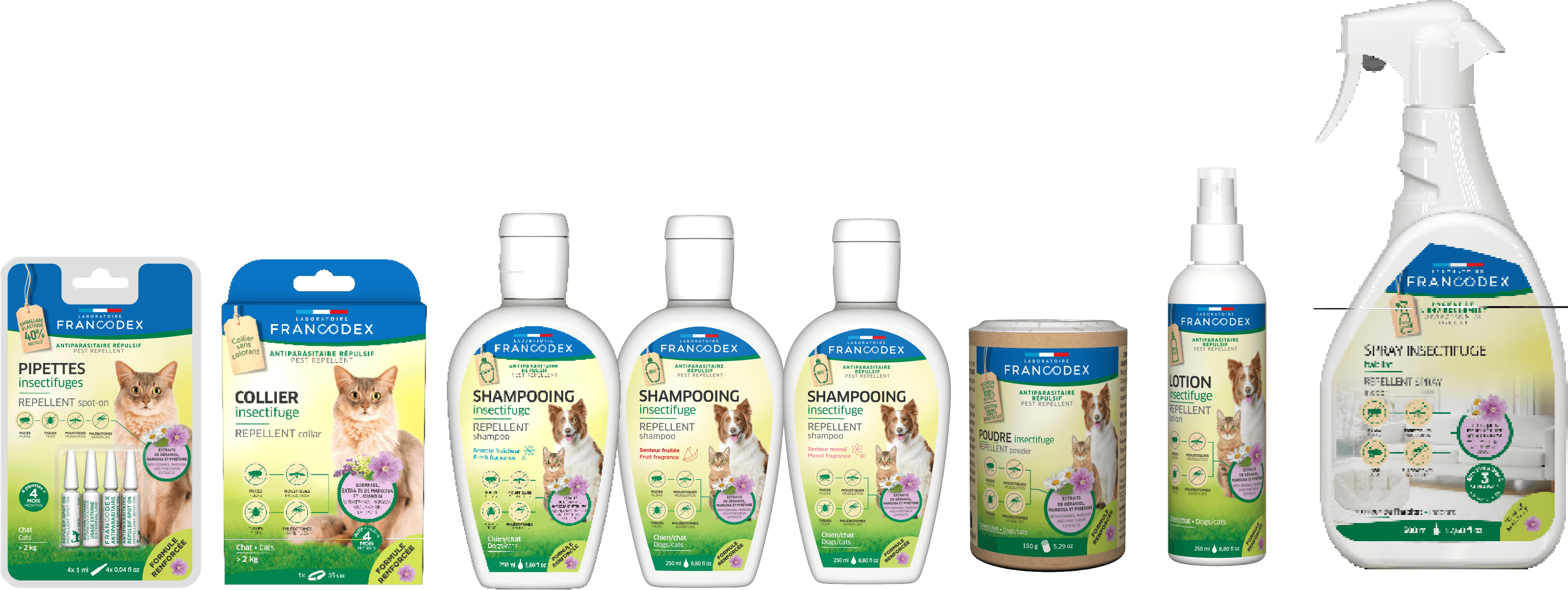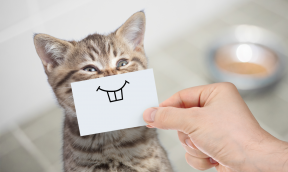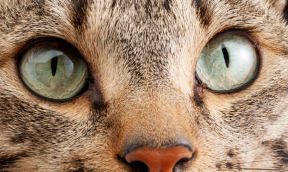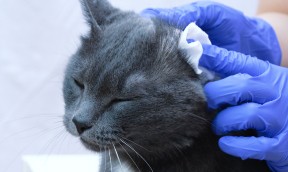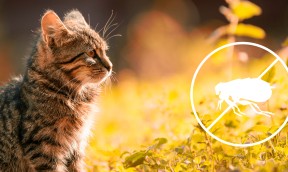
Protecting my cat from parasites without chemical insecticides
Contents: Why choose a flea repellent for cats? | Which plant extract-based antiparasitic product for cats should I use? | What are the dangers of biocides in general? | When are alternatives to traditional insecticides ineffective?
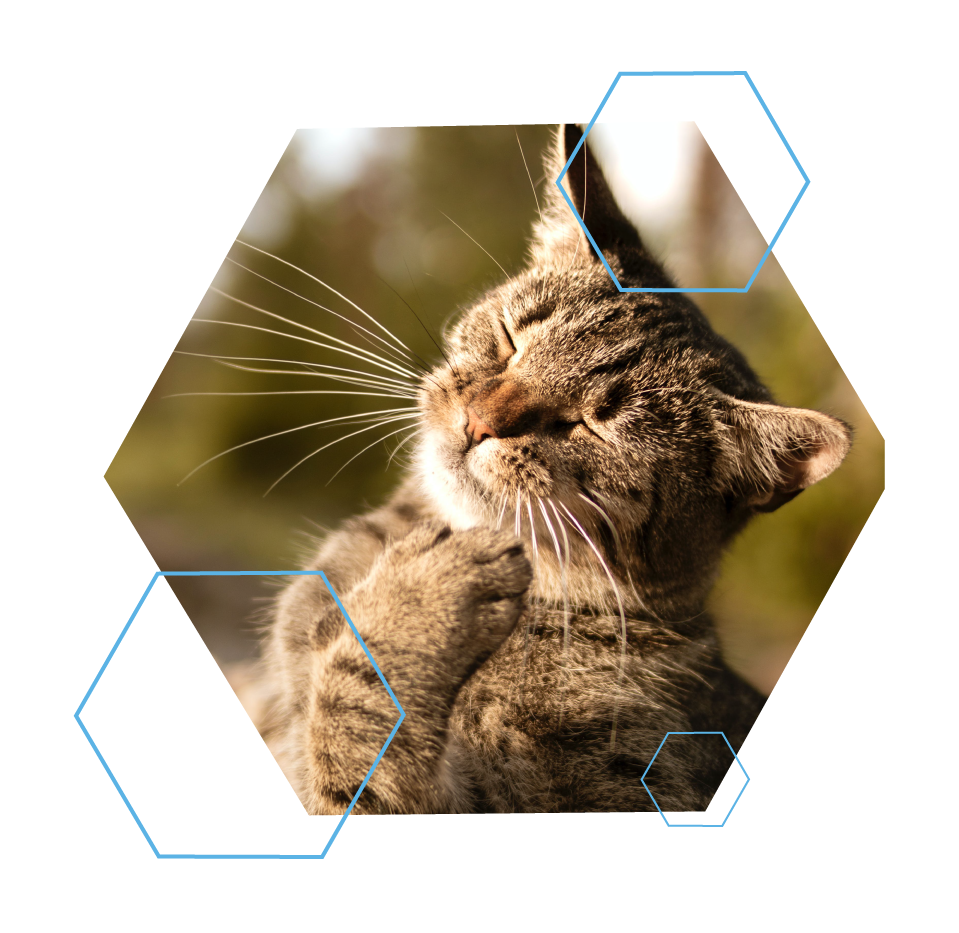
The summer season brings with it its share of external and internal parasites that make life difficult for both humans and their dogs. Mosquitoes, fleas, ticks and other pests can be repelled with a plant-based antiparasitic product for cats. As long as the precautions for use are followed, these repellents do not present the same risks to your cat and the environment as pharmacological molecules. Warning! If your dog is infested, or if there is a high risk of infestation, insecticide antiparasitic medication is essential.
Why choose a flea repellent for cats?
Owners are looking for natural, healthy products to meet their everyday needs: cosmetics, food, home care, gardening, etc.
Pet health and comfort are following this trend. A plant extract-based flea repellent for cats is sufficiently effective in a normal environment.
When the risk of contamination is low: your cat stays indoors and does not come into contact with other animals, so there’s no need to treat it with powerful drugs.
⚠️ Precautions for all antiparasitic products for cats: whether used as a repellent or an insecticide, side effects are more frequent if the product is overdosed or misused. You must always read and follow the instructions for use:
– target species: dog, cat, rabbit, etc.;
– dosage according to animal weight;
– area of application;
– frequency of application;
– good post-treatment practices (hand washing, etc.).
Which plant extract-based antiparasitic product for cats should I use?
Francodex has developed several alternative repellent solutions to combat external cat parasites effectively. For a low risk of infestation, choose an insect repellent that treats your pet, its environment or both.
Insect repellents for cats and the environment
Cat, kitten, dog or puppy, always keep a tick remover close at hand for quick and effective removal of living or dead ticks, no matter how small!
TREATING A CAT WITH A PLANT EXTRACT-BASED ANTIPARASITIC PRODUCT
The main difference between an insecticide and an insect repellent lies in its action. Insecticide kills the parasite present in the environment or on the animal, while insect repellent prevents the parasite from attacking your cat.
Alternatives to traditional cat insecticides contain plant extracts with repellent properties. They are an “insecticide-free” solution.
Depending on your preferences, you can choose from several products containing extracts of Margosa and/or Pyrethrum and/or Lavandin and/or Geraniol that are easy for you and your pet to apply:
- insect repellent pipettes for cats;
- insect repellent collar for cats;
- fruit insect repellent shampoo for cats, or fresh fragrance shampoo or monoï shampoo for summer;
- insect repellent powder for cats;
- insect repellent lotion for cats.
Most of these repellents are also suitable for dogs. Always choose a cat flea repellent or an insect repellent formulated for a particular species: dog, cat, rabbit, chicken, etc. Your cat should never ingest a repellent, whatever its composition!
⚠️Be careful when using essential oils on cats! Cats are particularly sensitive to essential oils due to a lack of liver-specific enzymes for the aromatic compounds in plants.
Opt for an antiparasitic product specifically developed for cats rather than using essential oils in a homemade preparation, even if the concentrations are very low and suitable for animals much smaller than your kitty. What’s more, never use a specific antiparasitic product for dogs on a cat, regardless of whether it is made from plant extracts or not. Some products are formulated for both species, but those reserved for dogs can be poisonous to cats and kittens, and vice versa. Of course, never use a product intended for human use on your pets, even if they are suitable for babies!
TREATING A CAT WITH A PEST REPELLENT
Insect repellents for the environment diffuse their extracts into your home to repel pests.
Active against fleas, lice, mosquitoes and sandflies, Francodex offers a range of formats and delivery methods to provide you with a simple solution:
- insect repellent spray effective for 3 weeks;
- insect repellent spray that eliminates adult fleas and ticks for 1 month and stops the development of flea eggs and larvae for 6 months. Maximum treatment area of 80 m² and action within 75 minutes after diffusion;
⚠️ Insect repellents are in class PT19 (baits and repellents) and should be used with caution. Read the label and product information before use. Do not leave these products within reach or sight of children or pets.
ECTO CHOC PARASITES products with 0% insecticides
Laboratoire Francodex offers you a wide range of antiparasitic products, in different formats to make them easier to use and provide the best possible coverage for your pet and its environment.
This range offers an alternative with 100% plant-based ingredients that acts against all flying and crawling pests. The products in the ECTO CHOC PARASITES range surround the parasite with a liquid film that blocks it and renders it inactive. No rinsing required, they combat fleas, ticks, mosquitoes, sandflies and flies.
We offer two formats to suit your preferences and needs:
A 290 ml spray to protect cats and their environment from external parasites. Misting allows you to cover a large area in the home.
A 200 ml lotion that protects cats from fleas, ticks, mosquitoes, sandflies and flies.
Their purely mechanical action and plant-based ingredients mean they can be used early on, on the animal and in its environment. They leave a pleasant, refreshing minty fragrance with soothing properties.
After application, prevent the animal from licking itself for a few minutes while waiting for the coat to dry. Then wipe down or brush the animal to remove the parasites. Wait a week before reapplying if pests are still present.
Proven effectiveness:
In the environment: 100% reduction in parasites:
• In 5 minutes for fleas
• In 4 hours for tick nymphs
• In 10 minutes for mosquitoes
These products should be kept out of reach of children.
Diatomaceous earth-based products
⚠️Diatomaceous earth-based products are insecticides in biocide class PT18 and should be used with caution. They are subject to stricter regulations than insect repellents because they are dangerous.
Before use, ensure that it is essential and choose products that are the least toxic for humans, animals and the environment.
Diatomaceous earth acts as an antiparasitic by drying out cat parasites. As it is abrasive, it is not recommended for use directly on the animal, unless indicated on the product, but can be sprinkled in the animal’s environment or on its bedding. Be careful, though, as it is an irritant to the skin, eyes and respiratory tract: don’t use it where you might come into contact with it, or where children are playing (e.g. sandpits!).
Diatomaceous earth is made up of fossilised micro-algae, the skeleton of which mainly consists of silica (a mineral resembling small glass crystals), which is drying and abrasive.
⚠️Diatomaceous earth-based products fall into biocide class PT18 and should be used with caution. Read the label and product information before use. Never leave a flea or tick repellent within reach of children or pets.
Complementary foods for your cat’s digestive comfort
Who hasn’t heard of eating pumpkin seeds or thyme to combat internal parasites? These plants help with digestion, but are no substitute for deworming medication, which will remove the parasites. Complementary cat foods containing these plants improve your pet’s intestinal comfort and help it to better fight off internal parasites.
In tablet form or as an oral solution, the palatability of these foods makes it easy for pets to take them quickly and voluntarily, even with the most suspicious cats! 😾
Discover the Vers O Net Oral Solution to add to your kitty’s drinking water.
What are the dangers of biocides in general?
The French Agency for Food, Environmental and Occupational Health & Safety (ANSES) warns of the undesirable effects and dangers of certain chemical active ingredients for animals and humans.
Antiparasitic products are regularly withdrawn from the market, while new ones do not obtain marketing authorisation (MA).
🤓 What is an MA? A marketing authorisation is required after a drug has been tested and before it can be marketed. The process can take up to ten years, and drugs are then regularly re-evaluated, in particular following adverse reaction reports and pharmacovigilance, which compiles and evaluates all the reports. This allows new medicines to be developed. In the case of external antiparasitic products, their efficacy is tested on one or more parasites, and these are always specified in the instructions for use.
A 2020 study showed that isoxazoline-based antiparasitic products for dogs (pipettes and collars) caused side-effects in almost two-thirds of those treated: digestive problems, itching and allergies.
This analysis focused on dogs, but similar findings apply to all pets. The side-effects of misuse or overdosing are even more alarming: lethargy, muscle tremors, convulsions, kidney failure, etc.
Biocidal antiparasitic products are assessed differently: firstly, the active molecules are assessed before they are authorised, and then the products are assessed before they are granted a marketing authorisation. However, not all insect repellent molecules have yet been assessed, which has delayed the granting of marketing authorisations. There is no system for monitoring the adverse effects of biocides in the same way as there is for medicines, but ANSES and poison control centres collect data on adverse effects and publish articles and studies that enable products to be developed to reduce the risks to animals.
This is the case when fipronil is used on rabbits: it is toxic, even fatal, for rabbits, even though it is one of the compounds whose use presents the fewest risks for domestic carnivores, and one of the very few that can be used on newborns as young as 2 days old.
A plant extract-based flea repellent for cats is not without danger or side effects. All veterinary medicines and biocidal antiparasitic products must be used in accordance with the correct dosage and the appropriate precautions!
Francodex helps you choose a product that respects your cat’s or kitten’s health and protects it from infestations that are also known to be dangerous.
When are alternatives to traditional insecticides ineffective?
Insecticide antiparasitic drugs are essential in the following cases:
- your pet will be spending the summer in a boarding kennel in the countryside and will be in contact with many other cats that may or may not have been treated against parasites. The risk of parasitism is high. And you won’t be there to check your cat’s fur every day. Opt for an antiparasitic product stronger than a plant extract-based flea repellent for the duration of its stay.
- it is summer and your cat spends all day in the fields and meadows around your house. As temperatures rise, fleas and ticks abound. In an environment where there is a high risk of infestation, both for your cat and for your home, we recommend that you use a conventional fipronil-based antiparasitic for a few weeks, to prevent your house becoming infested with flea eggs and larvae.
Insect repellent for cats and kittens has too weak a repellent effect to combat external parasites in an over-infested environment, and repulsion is never 100% effective.
If, despite your care and preventive treatments, your cat is infested with fleas or ticks or suffers from mosquito bites, consult your vet as soon as possible. The vet will suggest a tailor-made treatment to be followed to the letter, often involving medication.
The right antiparasitic product will effectively stop the proliferation of pests and calm your pet.
Of course, you can continue to treat your environment with a plant extract-based antiparasitic product for cats to limit the arrival of new parasites!
Now you know exactly when to use each type of antiparasitic product for cats to look after your pet at all times.
Article written with the assistance of
Dr Stéphanie Padiolleau, Veterinary Surgeon

